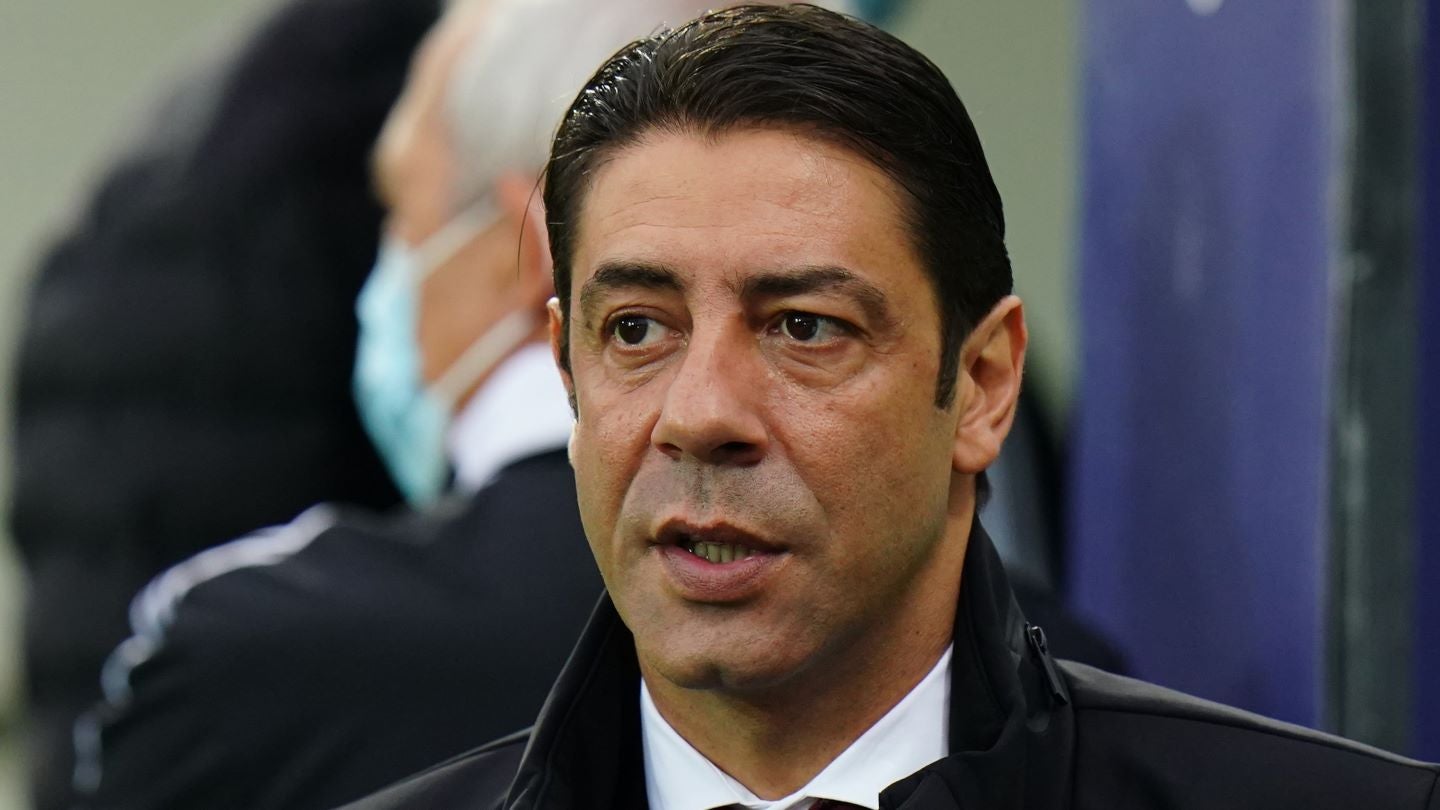
Benfica, the Portuguese soccer giants, have called for an immediate suspension of the process of centralizing television rights for the top-flight domestic league.
In an open letter sent to Portuguese Professional Football League (LPFP) president Reinaldo Teixeira earlier this week, Benfica president Rui Costa has demanded that the centralisation process, scheduled for 2028, be halted, claiming that it is behind schedule and outdated.

Discover B2B Marketing That Performs
Combine business intelligence and editorial excellence to reach engaged professionals across 36 leading media platforms.
The Lisbon-based club has suspended its position in the management of the Liga Centralização body set up in 2021, when the LPFP and the Portuguese Football Association (FPF) signed a Memorandum of Understanding to create a single company to oversee the league’s media rights sales.
Benfica are calling for urgent meetings with the government and parliamentary groups, and are urging the FPF, LPFP, and the Attorney General's Office to address the controversial issue of ex-referees occupying leadership roles within the sport's governing bodies.
In the letter, the club stated that after more than four years, the league has not fulfilled its “clear and legitimate ambition to strengthen competitiveness, guarantee the global appreciation of Portuguese football and promote greater equity between clubs.”
Rui Costa does not believe that “the current process meets the needs of Portuguese football” to effectively replace the current model of clubs’ individual sale of broadcast rights.

US Tariffs are shifting - will you react or anticipate?
Don’t let policy changes catch you off guard. Stay proactive with real-time data and expert analysis.
By GlobalDataHe added: “The current centralization process is delayed, at risk of failing to achieve its objectives, and already outdated in the international context. The impact that football has as a structuring sector of the Portuguese economy requires a clear strategic vision and responsible management.
“Benfica will always be supportive of the collective mission, but realistic regarding its value in the market and the potential of the project in its current form.”
The Portuguese government approved the centralisation of television rights in February 2021.
Rights in the top-tier Primeira Liga are marketed by individual clubs rather than centrally by the league, with SportTV, the pay-television broadcaster, having rights to 17 of the 18 sides until the end of the 2025-26 season, with the only outlier being Benfica, whose games are shown by the in-house Benfica TV, and distributed by the Nos platform.
Benfica’s current rights and channel distribution deal with telco Nos runs for a maximum of 10 seasons, from 2016-17 to 2025-26, and is worth up to €400 million ($467.8 million), an average of €40 million per season.
There have been growing calls over the years to adopt the centralised system more commonly used in rival European leagues to better redistribute wealth. In Portugal, the present model means the ratio between the club at the top and bottom of the league is 15:1.
In a seven-page letter published on the club’s website, Rui Costa claimed that the league’s target of €300 million per season from centralised rights sales “lacks credible foundation.”
The combined value of the Primeira Liga’s domestic media rights is currently around €180 million per season.
Rui Costa wrote: “In the current reality of the broadcast market, it is likely that the value of centralisation will not even reach €150 million to €200 million [per season], which would represent an irreparable loss of revenue for all Portuguese clubs — large, medium and small.
“This scenario would compromise competitive balance, financial sustainability and the overall quality of national football.”
The former Portugal international also accused the league of failing to present “alternative models” and not conducting a “real consultation process”. He added that it reflected neither on “competitive frameworks” nor investment in infrastructure modernisation.
Rui Costa additionally warned of an “overly concentrated domestic television rights market, with no effective competition between operators.”
Benfica stated that to “agree on a common position on minimum requirements and an alternative plan for responsible and beneficial centralization for all,” the club wants the league to lay out the financial landscape and propose distribution plans that weigh sporting achievement, media presence, and viewership stats. The club also wants to see a plan put in place to combat piracy.





